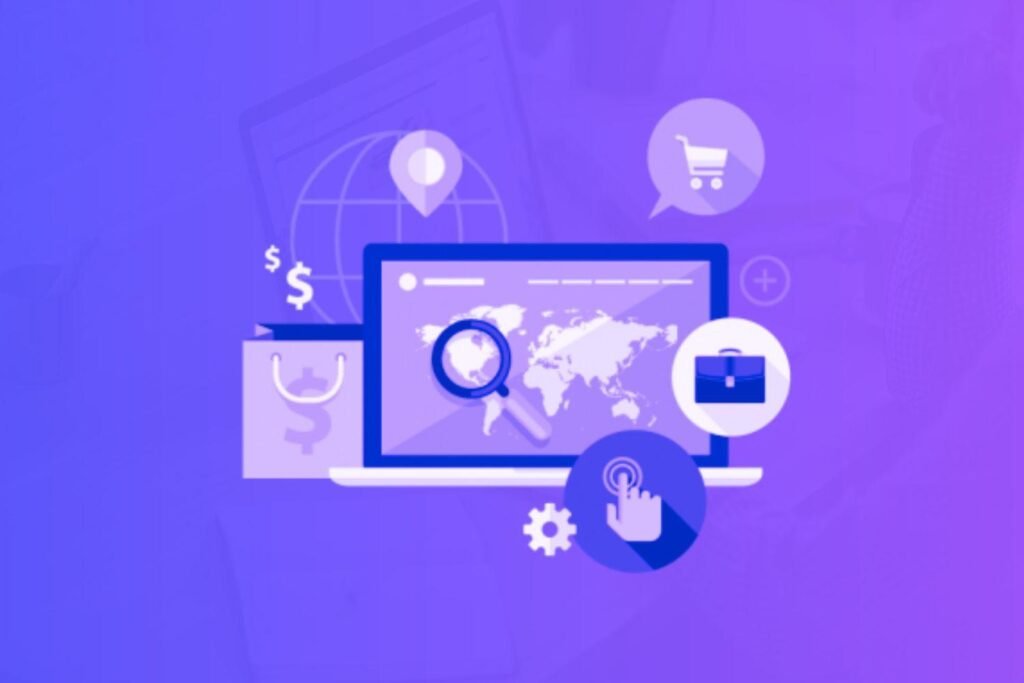If you need a comprehensive Salesforce review, you’re in the right place. Salesforce stands out as a leading platform for enhancing business operations and elevating customer relationship management (CRM).
It provides powerful tools and features designed to streamline processes, improve customer interactions, and boost overall sales performance. But is it the right choice for your business?
In this review, we’ll explore what makes Salesforce a popular choice, delve into its core functionalities, and help you determine if it’s the right solution for your business needs.
Disclaimer: If you buy any products through links on this site, I may earn a commission. But it doesn't make any difference to your cost, and it helps me keep this blog running. So you could always read my articles for free.
What is Salesforce?
Salesforce CRM is an industry-leading platform, ideal for sales workflow automation in a variety of industries.

As an all-in-one solution, Salesforce enables you to manage leads, contacts, accounts, and opportunities, helping you maximize your potential to close deals and grow relationships.
Built for large or scaling businesses, Salesforce offers extensive customization options. So your sales team could tailor the CRM to fit unique workflows and specific business needs.
With over 20 years in the market, Salesforce boasts an impressive array of integrations, working seamlessly with over 1,000 platforms.
This compatibility makes it easy to connect Salesforce with other software you already rely on, from marketing tools to project management systems.
Though setup can be complex, Salesforce provides ample support, guiding you through implementation and helping you create customizations as needed.
This versatility and support make Salesforce a comprehensive solution for robust CRM needs.
How Salesforce works
Salesforce works as a cloud-based CRM platform that helps you manage your business’s relationships with leads, customers, and prospects.
When you log into Salesforce, you access a dashboard that centralizes data, tasks, and communications, letting you track sales, monitor customer interactions, and follow up with leads—all in one place.
Salesforce’s core function is to streamline customer management. Through Sales Cloud, for instance, you can view and organize potential deals, while Lead Management tools help you track new opportunities from interest to closure.
If you’re handling support, Service Cloud enables you to create cases, respond to issues, and manage customer feedback. Additionally, Marketing Cloud automates campaigns based on customer data, making it easier to personalize outreach.
Salesforce also integrates with third-party applications through AppExchange, allowing you to expand its capabilities and sync it with other tools your team uses.
Overall, Salesforce centralizes and enhances your CRM process for greater productivity.
Salesforce key features
Next, in this Salesforce review, let’s take a look at its main features.
Automation and workflows
By using Salesforce’s automation tools, you can create workflows that automatically initiate actions based on specific conditions, ensuring nothing falls through the cracks in your sales or service processes.
With Process Builder, you can design multi-step workflows without coding, allowing you to automate tasks like sending follow-up emails, updating records, or assigning leads to sales reps.

You can also use Flow Builder to create more complex automations, such as routing customer inquiries based on case priority or calculating discounts on quotes.
If you need even deeper customization, Apex Triggers allow you to write code-based automations tailored precisely to your business needs.
Automation in Salesforce doesn’t just save you time; it ensures that important actions happen consistently and accurately, so you can maintain a smooth, productive workflow across your entire team.
Third-party integrations
As your all-in-one CRM, Salesforce already houses customer and sales information; integrating it with other platforms ensures that your data flows seamlessly across your tech stack.
Using AppExchange, Salesforce’s marketplace, you can access thousands of pre-built integrations for popular tools like Slack, QuickBooks, and Mailchimp.
These integrations let you automate tasks, share real-time updates, and keep information synced, saving you from manual data entry and reducing errors.

For more custom needs, you can use Salesforce APIs to build direct connections with specific software unique to your workflow.
For example, an API integration could connect Salesforce with your inventory system to update stock levels in real-time.
With Salesforce integrations, you create a streamlined, connected environment for your teams to work smarter and faster.
Project management
Salesforce offers robust project management capabilities that help you plan, execute, and track projects efficiently.
By integrating project management directly into your CRM, you can leverage customer insights and team collaboration to ensure project success.
Using Salesforce Tasks and Events, you can assign tasks, set deadlines, and track progress, all within the same platform where you manage your sales and customer relationships.

Chatter enables real-time collaboration, allowing you to communicate with your team, share updates, and brainstorm ideas without switching between tools.
For more complex projects, consider using Salesforce Lightning Apps or Salesforce Projects, which provide customizable dashboards to monitor key metrics, timelines, and resource allocation.
You can create Gantt charts to visualize project progress and keep everyone aligned on goals.
With Salesforce’s project management features, you enhance your workflow, streamline communication, and ultimately drive your projects to completion more effectively.
Artificial intelligence
With features like Einstein, Salesforce’s AI engine, you can use data-driven insights, make the right decisions and automate repetitive tasks.

Einstein analyzes customer data to provide predictive analytics, helping you zero in on which leads are most likely to convert to customers.
This allows you to prioritize your efforts and focus on high-value prospects. With Einstein Lead Scoring, you receive actionable insights on leads based on historical data, ensuring you target the right audience.
Additionally, AI-powered chatbots in Einstein Bots can handle customer inquiries in real time. This way, you can provide instant support and free up your team to focus on more complex tasks.
You can also use Einstein Analytics to visualize data trends and generate reports effortlessly. By integrating AI into your Salesforce environment, you enhance efficiency, improve customer interactions, and drive sales success.
Pros and cons of Salesforce
While it offers numerous benefits, it’s essential to consider both the pros and cons in this Salesforce review to determine if it’s the right fit for your needs.
Salesforce pros
Comprehensive Features: Salesforce provides a wide range of tools for sales, marketing, and customer service. Features like Sales Cloud, Service Cloud, and Marketing Cloud allow you to manage every aspect of customer interaction in one place.
Customizability: You can tailor Salesforce to fit your unique business needs through custom fields, workflows, and third-party integrations. This flexibility ensures that the platform grows with your business.
Strong Analytics: With advanced reporting and dashboard features, Salesforce enables you to gain insights into customer behavior and sales performance, helping you make informed decisions.
Scalability: Salesforce scales to accommodate your business size and complexity, allowing for growth without changing platforms.
Community and Support: Salesforce has a vast community of users and extensive resources, including documentation, forums, and customer support, making it easier to find help when needed.
Salesforce cons
Complexity: The extensive features can be overwhelming, especially for new users. The learning curve may require significant time and training for your team to become proficient.
Cost: Salesforce can be expensive, especially for small businesses. Subscription fees can add up, particularly if you need advanced features or multiple user licenses. We will discuss the costs in detail in this Salesforce review.
Setup Time: Customizing Salesforce to meet your needs can be time-consuming, requiring dedicated resources and expertise.
Integration Challenges: While Salesforce offers many integrations, connecting it to existing systems may pose challenges, particularly if those systems are outdated or incompatible.
Salesforce pricing plans
Understanding Salesforce CRM pricing in this Salesforce review is crucial for evaluating whether it fits your budget and business needs. Salesforce offers a range of plans tailored to different company sizes and requirements.
Essentials: Starting at $25 per month, this plan is ideal for small businesses. It includes basic CRM functionalities, contact management, and email integration, allowing you to manage your customer interactions efficiently.
Professional: At $100 per month, this plan adds more robust features, such as campaign management, custom reports, and forecasting. This plan suits growing teams needing enhanced sales automation.
Enterprise: Priced at $165 per month, the Enterprise plan offers advanced customization options and additional features like API access, workflow automation, and more comprehensive reporting capabilities. It’s ideal for larger businesses with complex needs.
Unlimited: For $330 per month, the Unlimited plan provides the full spectrum of Salesforce features, including 24/7 support, unlimited customization, and advanced analytics. This plan is perfect for organizations that require extensive resources and support.
Einstein 1 Sales: For $500 per user per month, this plan offers an all-encompassing solution for sales teams. It includes all the features of the Unlimited plan. Additionally, it provides performance management, sales programs, team collaboration with Slack, data unification with Data Cloud, and revenue intelligence.
Final verdict on Salesforce
Salesforce stands out as a powerful CRM solution that can significantly enhance how you manage customer relationships, sales processes, and marketing efforts.
You benefit from a centralized platform that not only streamlines workflows but also provides valuable insights to drive decision-making.
However, it’s essential to consider the complexities and costs associated with Salesforce. While its robust capabilities offer great potential, the learning curve and pricing structure might present challenges, especially for smaller organizations. In that case, you can check Salesforce alternatives.
Did I miss anything in this Salesforce review? Did you try Salesforce? Do you have any questions or comments? Share your thoughts below in the comments section.





